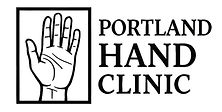
Orthopedic Hand Surgery
Here, you’ll find everything you need to know to prepare for your upcoming procedure—including detailed instructions for the day of surgery, as well as pre-operative and post-operative care guidelines. Our goal is to ensure you feel informed, confident, and supported every step of the way. Please review the information carefully and don’t hesitate to reach out with any questions.
Pre Operative Guidelines

One week prior to surgery
If you are on any GLP-1 medications such as Ozempic or Trulicity, you will need to stop this at least one week before your surgery. If this is not discontinued, your surgery will be rescheduled.
Evening prior to surgery
-
Do not eat or drink anything after midnight or as specifically indicated by Dr. Yang or the admitting nurse clinician.
-
Do not smoke on the day of your surgery.
-
If you should develop a sore throat or fever, please contact Dr. Yang.
-
Rest and Relax!!!
Plan ahead
YOU WILL NEED TO ARRANGE FOR SOMEONE TO DRIVE YOU HOME. THIS IS MANDATORY – YOU WILL NOT BE ALLOWED TO LEAVE THE HOSPITAL OR FACILITY WITHOUT A RESPONSIBLE ADULT. RIDESHARES SUCH AS LYFT OR UBER ARE NOT PERMITTED.
If you are having surgery at a surgery center, please select from one of the following locations for more information:
Surgery Day

Morning prior to leaving for the hospital or facility:
-
Take a soapy shower or bath. Concentrate on the area where the surgery will be performed.
-
Do not shave the area where the surgery is to be performed. If shaving is necessary, it will be done immediately prior to surgery.
-
Do not wear make-up.
-
Wear loose, comfortable clothing.
What to bring
with you:
-
Any medication you routinely take
-
Any insurance papers the hospital or facility needs
-
A photo ID
-
Medicare or welfare card, your social security card or deposit (if financial arrangements have not already been taken care of)
What NOT to bring
with you:
-
Large amounts of cash
-
Jewelry
-
Other valuables
Post Operative Guidelines

Follow Up
Call Dr. Yang’s office for a return appointment. You are to be seen as scheduled usually about 10-14 days after surgery. Please call (503) 239-8430 to schedule an appointment.
Diet
You may resume your usual diet once nausea has ceased. If nauseated, start with clear liquids (tea, broth, jello) and advance slowly to more solid foods.
Dressing
Leave your dressings in place until your post-operative appointment! Keep your dressings clean and dry. You may shower or sponge bathe tomorrow, but the dressings must stay dry; wrap the dressings with plastic and tape.
Medications
-
Take your prescription(s) as directed on the bottle.
-
Take your pain medication(s) with food to prevent nausea. Pain medications may cause constipation, so a stool softener may be helpful.
-
No driving or drinking alcoholic beverages while taking pain medication.
-
You may continue taking your usual medications. Consult Dr. Yang if you have questions about resuming aspirin or other blood thinners.
-
If you were given a prescription for either Percocet or Norco, do not take extra Tylenol until you are finished with this pain medication. These medications contain Tylenol and an overdose of Tylenol can occur if you take both at the same time.
-
If your pain medication does not have Tylenol in it, you may supplement with Tylenol to help with the pain. You may take up to 1000 mg every 6 hours. Do not take more than this dosing.
-
You can also take Ibuprofen to help with the inflammation, up to 800 mg of Ibuprofen every 8 hours. Do not exceed this dosing.
Activity
You may experience dizziness, drowsiness or light-headedness after anesthesia or sedation. Do not drive or operate power equipment for 24 hours. Do not engage in activities that require coordination or the ability to respond quickly.
-
Rest with the operative arm elevated as much as possible for the next 2 days.
-
Apply ice packs over your dressing or splint intermittently for the next 24 hours and longer as needed.
-
Observe your fingers for color, warmth, swelling, and numbness. If they are pale, cold, very swollen, or excessively painful, call Dr. Yang at once.
-
No lifting, loading or straining with your operative arm until approved by Dr. Yang. Start gentle range of motion of your free un-splinted joints, please.
-
If you have received a nerve block, you may experience numbness and tingling for 24-36 hours. Your fingers may appear flush and warm to the touch.
Report any of the following to Dr. Yang
-
Persistent nausea or vomiting
-
Chills and/or persistent fever over 101 degrees
-
Persistent bleeding that keeps the dressing wet
-
Increased pain or swelling that is not relieved by rest, elevation of the arm and prescribed pain medication
-
Redness with swelling and/or persistent drainage at the procedure site
-
Increased numbness, coldness or tingling of the extremity
-
Pain with swelling, heat or redness at the IV site
-
Difficulty breathing, shortness of breath or chest pain – call 911
-
Calf pain, swelling or redness

